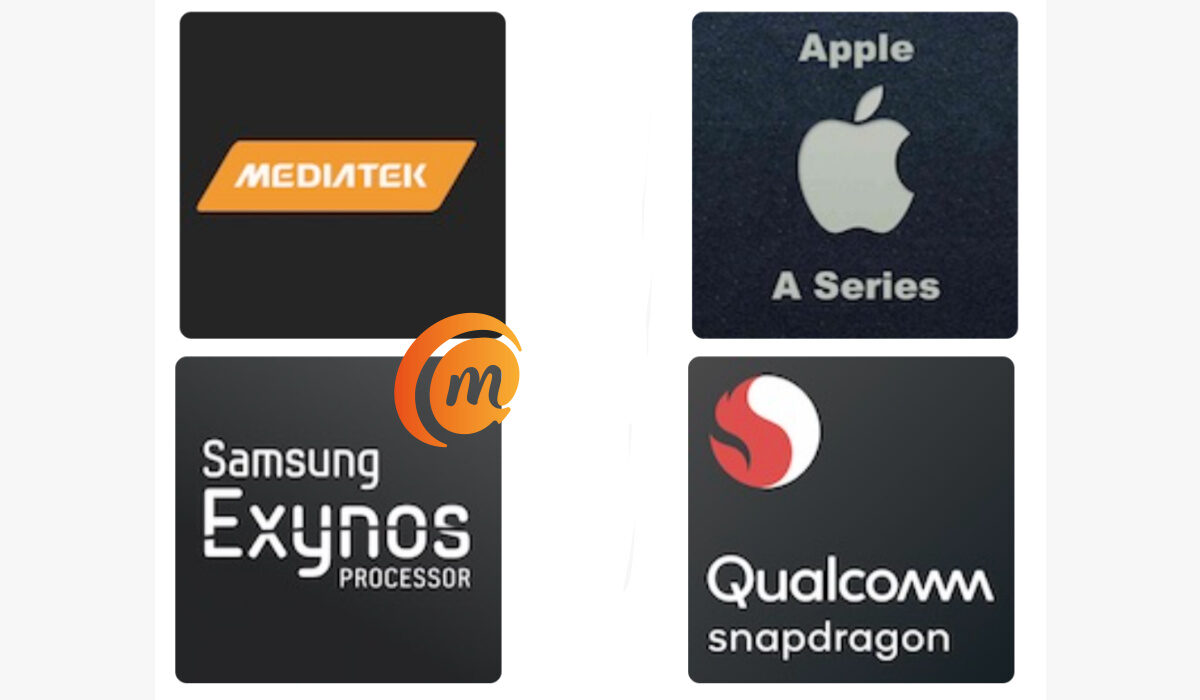In the world of computing – desktop, laptop, mobile and others – a processor can be likened to the brain or engine of a device. Even though smartphone processors are more complex than that, as a layman, this is easy to relate to. Smartphone processors work to run the devices. The more powerful the processor of your smartphone or PC, generally speaking, the more capable it is, the faster it runs, and the heavier the tasks it can carry out.
There are a number of factors that determine how good smartphone processors are. For example, beyond how powerful and fast they are, there is the question of what features they support e.g. camera features and capabilities, network standards, charging technologies, artificial intelligence (AI), and more.

Table of Contents
Smartphone Processors And Cores
You must have heard of single-core, dual-core and others. If you have ever wondered how they work, we bring you the breakdown.
- A single-core processor has only one actual central processing unit (CPU). This unit is called a core.
- A dual-core processor is a single computing component (a “chip”) with two independent actual central processing units (“cores”).
- A quad-core processor is a single computing component with four independent actual central processing units (“cores”).
- An octa-core processor is a single computing component with eight independent actual central processing units (“cores”).
There are also smartphones with 6 core processors = hexa-core. If/when they arrive, 10 cores = deca-core.
How Do Smartphone Processors Work?
The more cores a processor has, the more efficient it runs. This is because with multiple cores, different tasks on your PC or phone are distributed among the cores. Multiple core processors can help cut down on battery consumption and also help your phone or PC run smoother and handle heavier tasks.
Multiple cores help the most when you need to do more things at the same time on your phone or PC. This is called multitasking. In multiple core processors, each core is independent of the other. During light usage, only one core may run, and then when you switch to heavier usage, more cores kick in to help handle the load.
Doubling processor cores does not produce twice the speed. A quad-core processor won’t run your phone twice as fast as a dual-core processor. Multiple cores do not mean total speeds in multiples of the speed rating. For example, a 1.2GHz dual-core processor does not run at a top speed of 2.4GHz. It means that both cores run at 1.2GHz each for handling different tasks.
Apart from number of cores, though, smartphone processors are also rated by speed e.g. 1.3GHz, 1.7GHz, 2.0GHz. The higher the figure, the faster the core and the processor. A 1.7GHz single-core processor is more powerful and faster than a 1.2GHz dual-core processor, but the latter will provide better performance in usage scenarios involving running multiple tasks at the same time because it has more cores available to handle those tasks more efficiently.
What are the processors used in mobile phones?
There are a number of chip makers behind the different smartphone processors in use around the world today. The major ones are:
- Qualcomm. This company makes Snapdragon chipsets, which are some of the most widely used smartphone processors around today.
- MediaTek. MediaTek is a budget chipset maker and its processors are seen in budget smartphones around the world, especially in those that are made in China. MediaTek makes MKT, Helio, and Dimensity brands of smartphone processors.
- Apple: An American brand, Apple makes the Bionic chip used in its iPhones and iPads.
- EXYNOS is a processor maker owned by Samsung Mobile and so its chipsets are used mostly in Samsung smartphones.
- Hisilicon. This is a subsidiary of Huawei, and its chipsets are found mostly in Huawei phones.
- Unisoc (formerly Spreadtrum) is a Chinese chipset manufacturer for mobile phones. Its low-cost processors are found mostly in entry-level smartphones and feature phones.
Which is more important RAM or processor in mobile?
Lastly, it is important that I touch on a fairly common question: whether RAM or processor is the more important feature in a smartphone. The answer is that RAM and the processor handle different tasks. A smartphone processor determines how powerful and fast a phone operates, while RAM determines how fast and how smooth apps are launched or switched.
So, you need a combination of a smartphone processor and RAM for the best performance in a phone. The fastest smartphone processors paired with poor RAM will still result in a less than satisfactory experience on a smartphone. This is why high-end smartphones have the fastest processors and the biggest amount of RAM available. You can read up our more detailed article about processors and RAM for a clearer picture.
Conclusion
Smartphone processors dictate the capabilities of the device in many ways. They determine how capable the camera can be, whether the phone supports 3G, 4G, or 5G, and how much artificial intelligence (AI) functions the device has.
- Don’t miss our mobile phone reviews.